Shell in the UK is a far more attractive proposition for both customers and dealers than it has been for some time, according to David Moss, who took over as the company’s general retail manager, north cluster (UK, Denmark, Norway), at the start of the year, replacing Melanie Lane. And the dealer offer is evolving into something particularly compelling, he claims.
The company has spent hundreds of millions of pounds in the past few years transforming its UK business, since realising in 2009 that the recession, coupled with its strategy of ’quality fuel at competitive prices’, would hit the ’profitable growth’ graph where it hurts. Hence a new strategy was required.
Comprehensive research revealed that Shell had the biggest market share of those cost-conscious drivers who make every penny count hardly surprising considering the ’competitiveness’ of fuel prices on some Shell company-owned sites, which has angered many retailers, who had no chance of competing.
What Shell needed to attract were more of the motorists revealed in the research as ’road warriors’ those who spend a considerable amount of time in their vehicles and look for good facilities, along with food and coffee, when they stop. They apparently make up just 15% of the customer base, but 50% of the profitability.
In 2010, a new Conran-designed shop format was launched known within the company as Thunderdome along with the Deli2Go brand, a range of food and drinks. Then in 2011 Shell acquired around 250 Total sites from Rontec, which are now fully integrated into the network, a project which included rebranding and either refurbishing the store, or complete knock-down rebuilds, all within 18 months.
In 2012 Shell completed the purchase of the former Coryton Refinery now known as the Thames Oil Port in a joint venture with Royal Vopak and Greenergy.
There was also a lot of publicity about the introduction of around 400 forecourt attendants introduced last year on 300 Shell sites. The attendant sevice was designed to offer a more personal service, improving the customer experience. And on that score, Shell has invested in a customer feedback system called Tell Shell, which has been crucial in gauging customer response to its activities.
More recently there has been a campaign to promote Deli2Go using the theme ’proud not to serve garage food’. The range led to Shell winning the En-route Sandwich Retailer of the Year category at the recent British Sandwich Association Awards.
On the fuel side there has been the launch of the new premium range.
"The launch of Shell V-Power Nitro+fuels in the UK is the latest development strategy to put our customers at the heart of all that we do and to listen to what they want from Shell," says Moss, adding that the new fuel has been very well received despite its premium price.
"We understand that motorists are concerned about the price of fuel and we do everything we can to provide our customers with a choice of high-quality, competitively priced fuel.
"It’s important to remember that a car is often one of the most expensive purchases a motorist will make and is the pride and joy of its owners.
"Therefore, wouldn’t you want to put the best available product in your car to keep it as clean on the inside as it is on the outside?"
Shell has also earned the accolade of being the UK’s most valuable brand in Marketing Week’s annual Top 50 listing of the most valuable brands of British origin. Its brand value is estimated to have rocketed 35% to £19.5bn, knocking Vodafone off the number one spot for the first time in three years.
In fact, the only real blot on the landscape has been the recent raid on a number of companies, including Shell, by European Commission agents, investigating oil price fixing.
Understandably Moss is unable to comment on this inquiry, which does not involve his part of the company, except to say: "In Shell we pride ourselves and so do our retailers on having the highest standards, morals and ethics. So when there is an inquiry we openly accept the investigators will look at whatever they need to. It hurts when you see that about your brand. We will respond in a very open way."
Inquiry aside, with such an impressive recent CV, no wonder Moss is feeling so positive about what Shell can and will be able to offer dealers.
"If I was an independent dealer I’d be thinking that Shell is more attractive as a customer proposition than it has been for some years," he says, at the same time stressing that more is yet to come, and should be in place by the end of the year.
Part of the improved offer will focus around the Thames Oil Port, which is currently being developed, and is expected to be fully operational by the end of the year, serving the South East.
"Clearly we will be looking to have an attractive proposition for independent dealers in that supply envelope, than perhaps we’ve had in the past," confirms Moss.
Dealers have now become a major target for Shell UK Retail. Its network has grown to approximately 1,100 Shell-branded service stations, of which only 250 are dealers. There are no direct-managed sites, Shell service stations are operated under Retailer Business Agreements (RBAs), by independent business people who run clusters of between five and 12 sites the average is seven to eight.
"We have about 110 RBAs, and they are incentivised on shop, car wash and fuel sales in a way that reflects their level of investment," explains Moss.
"We own the sites and maintain them it’s our equipment and our fuel but their dry stock. The sites are run to very strict standards because customers want a good offer from Shell, they want consistency.
"We’re doing very well on our company- owned sites that’s what our customers are telling us. When you acquire 250 sites, do the re-branding and see wonderful volume increases as a result, that also tells us we’re doing okay.
"I believe the attractiveness of the Shell brand means we are able to select the best retailers, because hopefully we’re attracting the best to apply to us, so we end up with people who have the same value set, and run the operation as we want it to be run, because they see the mutual benefit.
"Shell enjoys nearly five million customers a week on its UK forecourt network, that’s about 7-800,000 customers a day, so you need a certain kind of individual who can service those ’guests’ if you like pleasantly, running a team 24/7. Customers should be seen as guests after all, they’re spending a lot of money, when they come and visit our stations!"
In the past few months Moss has overseen a reorganisation that should help bring more dealers into the fold.
In addition to a company-owned team, headed by Sue Annis, Shell has created a dedicated dealer team to focus on the needs of independent retailers.
It will be headed up by Andrew Braxton as UK dealer manager. Michael Hominick is the UK North cluster marketing manager, who led the project to bring the Total sites into Shell.
"Those three people are critical to the delivery of the Shell offer," says Moss.
"Towards the end of the year, Shell will be out there, not only with strong relationship managers, but also a winning proposition for dealers.
"Andrew and his team will be targeting dealers, working on our compelling offer, bringing that to market, using the strength of our brand and our products and the investment we’ve been able to make in the company network.
"We believe there is a real long-term future for the Shell brand in the UK market, we’ve proven that with the investments we’ve made.
"Shell invests heavily around the world, and to have made the investment it has in the UK is real evidence of its commitment. Shell is evolving its compelling offer, based on what its customers are telling them. We’ve listened, digested, invested, implemented, and now we’re delivering."
David Moss
As the general retail manager for the North Cluster, David Moss is responsible for the Shell Retail business in the UK, Denmark and Norway. With more than 35 years’ experience at Shell, David began his career in the firm’s downstream business, initially in aviation, then marine. He joined the retail business as a territory manager in the mid-1980s and since then has held roles with increasing responsibility within marketing, sales, operations and strategy in Europe, the US and globally.
During this time he has worked in Shell companies, subsidiaries and joint ventures. More recently he was the general manager for Shell Retail’s global operator platform change and for global site systems.
"I have worked in most markets in the world, and the UK is probably the most competitive of them all," says Moss. "The operating standards demanded by customers are relentless. Anyone operating a service station must deliver to those standards otherwise they’re going to fail."




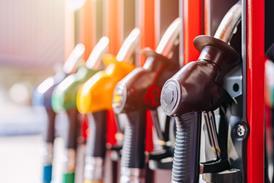
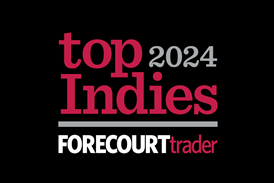






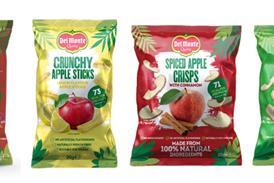
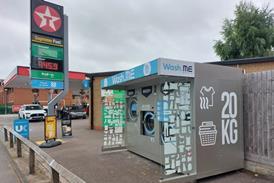

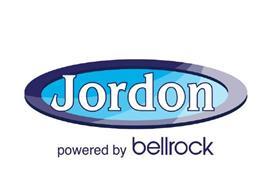






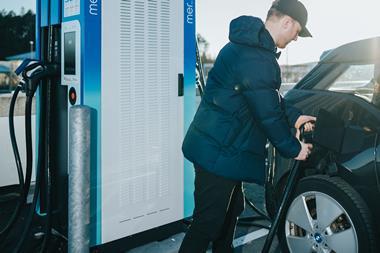
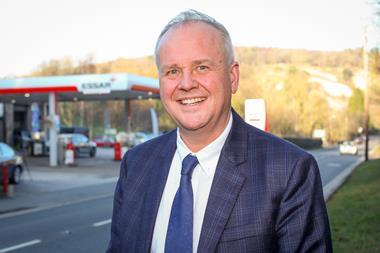
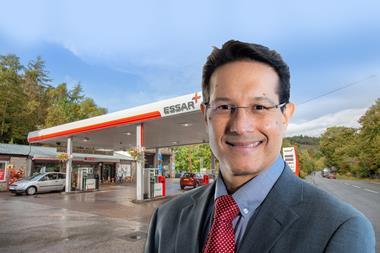
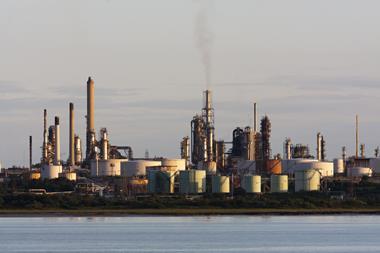
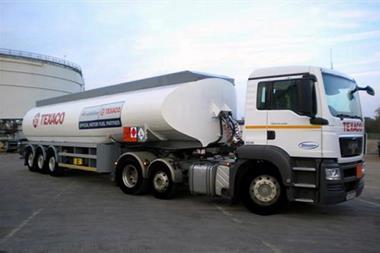
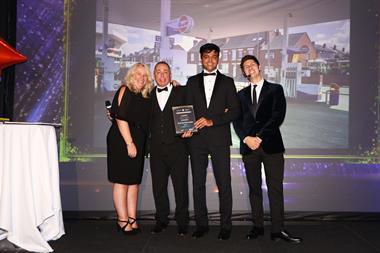
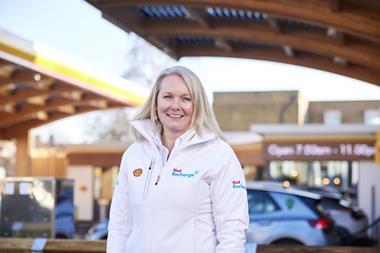
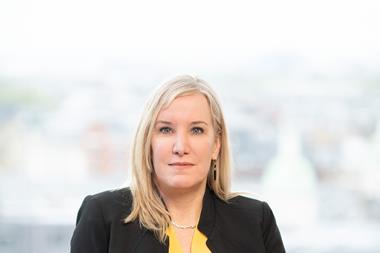

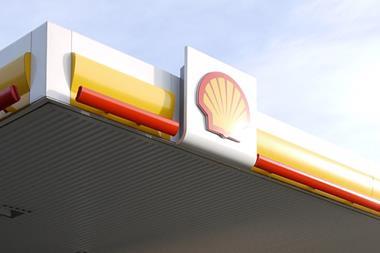
No comments yet